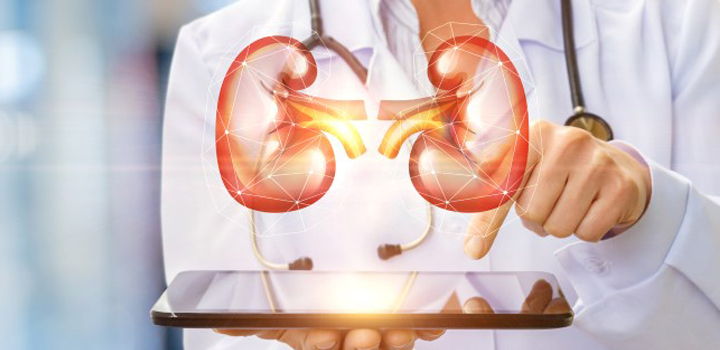Best Nephrology Hospital in Ahmedabad, Gujarat

Nephrology is a branch of medicine that deals with the diagnosis and treatment of kidney diseases, including hypertension and electrolyte imbalance and also deals with the treatment of patients who require Renal Replacement Therapy in the form of Dialysis & Renal Transplant.
Nephrology department
- Hypertension
- Diabetic Kidney Disease
- Inherited Kidney Disease
- Kidney Stones
- Nephritis and Nephrotic Syndrome
- Vasculitis
- Polycystic Kidney Disease
- Critical Care Nephrology
- Acute and Chronic Renal Failure
What are Kidneys?
Kidneys are bean-shaped organs around 10-12 cm in length, 2 in number situated on either side of the backbone. Each kidney comprises of approximately 1 million nephrons, the functioning units- the filtration units. The kidneys function to purify the blood and to remove toxins from blood.
Common causes of Kidney Diseases
- Diabetes Mellitus
- Hypertension (High Blood Pressure)
- Hereditary Kidney Disease
- Inflammation of kidneys (Glomerulonephritis)
Common symptoms of Kidney Diseases
- Swelling of face and legs
- Decrease in urine output
- Increased urination at night
- Blood in urine
- Decreased appetite vomiting
- Breathlessness
Common Signs:
- Rise in BP (Hypertension)
- Anemia (fall in hemoglobin)
- Dry skin
Are you at risk of Kidney Disease?
If you have diabetes, high blood pressure or family history of kidney diseases, you may be at risk of developing kidney disease. Periodic screening in the form of simple blood and urine test is helpful in detecting early kidney disease and preventing deterioration of kidney function.
Precautions to be taken for Healthy Kidneys
- Adequate fluid intake
- Healthy diet
- Blood Pressure control
- Diabetes control
Clinical Services/Procedures offered are:
- Inpatient/outpatient Haemodialysis
- Renal Biopsy
- Plasmapheresis
- Chronic Ambulatory Peritoneal Dialysis
- Being an international level hospital, complicated cases are referred to this department from various other centers.
Haemodialysis
- Haemodialysis is a method, wherein blood is purified through a machine known as “hemodialyser”. Blood flows through a dialyser and is returned to the body after purification.
- Haemodialysis requires AV-Fistula or dialysis catheter. Dialysis catheter could be of short term or long term duration.
- Haemodialysis should be performed twice or thrice a week as per advice by nephrologist for patients whose kidneys are permanently impaired.
- Haemodialysis is also required and performed in patients having severe, but temporary reduction in kidney function.
- It can be performed at hospital only under observation of skilled nephrologists and technical staff.
